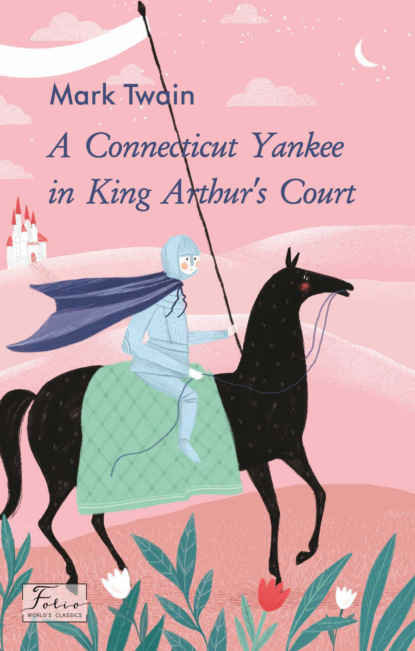 Полная версия
Полная версияПолная версия:
Марк Твен Life on the Mississippi
- + Увеличить шрифт
- - Уменьшить шрифт

Mark Twain
Life on the Mississippi
THE ‘BODY OF THE NATION’
BUT the basin of the Mississippi is the Body of The Nation. All the other parts are but members, important in themselves, yet more important in their relations to this. Exclusive of the Lake basin and of 300,000 square miles in Texas and New Mexico, which in many aspects form a part of it, this basin contains about 1,250,000 square miles. In extent it is the second great valley of the world, being exceeded only by that of the Amazon. The valley of the frozen Obi approaches it in extent; that of La Plata comes next in space, and probably in habitable capacity, having about eight-ninths of its area; then comes that of the Yenisei, with about seven-ninths; the Lena, Amoor, Hoang-ho, Yang-tse-kiang, and Nile, five-ninths; the Ganges, less than one-half; the Indus, less than one-third; the Euphrates, one-fifth; the Rhine, one-fifteenth. It exceeds in extent the whole of Europe, exclusive of Russia, Norway, and Sweden. It would contain austria four times, germany or spain five times, france six times, the british islands or italy ten times. Conceptions formed from the river-basins of Western Europe are rudely shocked when we consider the extent of the valley of the Mississippi; nor are those formed from the sterile basins of the great rivers of Siberia, the lofty plateaus of Central Asia, or the mighty sweep of the swampy Amazon more adequate. Latitude, elevation, and rainfall all combine to render every part of the Mississippi Valley capable of supporting a dense population. As a dwelling-place for civilized man it is by far the first upon our globe.
EDITOR’S TABLE, HARPER’S MAGAZINE, FEBRUARY 1863
Chapter 1
The River and Its History
THE Mississippi is well worth reading about. It is not a commonplace river, but on the contrary is in all ways remarkable. Considering the Missouri its main branch, it is the longest river in the world – four thousand three hundred miles. It seems safe to say that it is also the crookedest river in the world, since in one part of its journey it uses up one thousand three hundred miles to cover the same ground that the crow would fly over in six hundred and seventy-five. It discharges three times as much water as the St. Lawrence, twenty-five times as much as the Rhine, and three hundred and thirty-eight times as much as the Thames. No other river has so vast a drainage-basin: it draws its water supply from twenty-eight States and Territories; from Delaware, on the Atlantic seaboard, and from all the country between that and Idaho on the Pacific slope – a spread of forty-five degrees of longitude. The Mississippi receives and carries to the Gulf water from fifty-four subordinate rivers that are navigable by steamboats, and from some hundreds that are navigable by flats and keels. The area of its drainage-basin is as great as the combined areas of England, Wales, Scotland, Ireland, France, Spain, Portugal, Germany, Austria, Italy, and Turkey; and almost all this wide region is fertile; the Mississippi valley, proper, is exceptionally so.
It is a remarkable river in this: that instead of widening toward its mouth, it grows narrower; grows narrower and deeper. From the junction of the Ohio to a point half way down to the sea, the width averages a mile in high water: thence to the sea the width steadily diminishes, until, at the ‘Passes,’ above the mouth, it is but little over half a mile. At the junction of the Ohio the Mississippi’s depth is eighty-seven feet; the depth increases gradually, reaching one hundred and twenty-nine just above the mouth.
The difference in rise and fall is also remarkable – not in the upper, but in the lower river. The rise is tolerably uniform down to Natchez (three hundred and sixty miles above the mouth) – about fifty feet. But at Bayou La Fourche the river rises only twenty-four feet; at New Orleans only fifteen, and just above the mouth only two and one half.
An article in the New Orleans ‘Times-Democrat,’ based upon reports of able engineers, states that the river annually empties four hundred and six million tons of mud into the Gulf of Mexico – which brings to mind Captain Marryat’s rude name for the Mississippi – ‘the Great Sewer.’ This mud, solidified, would make a mass a mile square and two hundred and forty-one feet high.
The mud deposit gradually extends the land – but only gradually; it has extended it not quite a third of a mile in the two hundred years which have elapsed since the river took its place in history. The belief of the scientific people is, that the mouth used to be at Baton Rouge, where the hills cease, and that the two hundred miles of land between there and the Gulf was built by the river. This gives us the age of that piece of country, without any trouble at all – one hundred and twenty thousand years. Yet it is much the youthfullest batch of country that lies around there anywhere.
The Mississippi is remarkable in still another way – its disposition to make prodigious jumps by cutting through narrow necks of land, and thus straightening and shortening itself. More than once it has shortened itself thirty miles at a single jump! These cut-offs have had curious effects: they have thrown several river towns out into the rural districts, and built up sand bars and forests in front of them. The town of Delta used to be three miles below Vicksburg: a recent cutoff has radically changed the position, and Delta is now two miles above Vicksburg.
Both of these river towns have been retired to the country by that cut-off. A cut-off plays havoc with boundary lines and jurisdictions: for instance, a man is living in the State of Mississippi to-day, a cut-off occurs to-night, and to-morrow the man finds himself and his land over on the other side of the river, within the boundaries and subject to the laws of the State of Louisiana! Such a thing, happening in the upper river in the old times, could have transferred a slave from Missouri to Illinois and made a free man of him.
The Mississippi does not alter its locality by cut-offs alone: it is always changing its habitat bodily– is always moving bodily sidewise. At Hard Times, La., the river is two miles west of the region it used to occupy. As a result, the original site of that settlement is not now in Louisiana at all, but on the other side of the river, in the State of Mississippi. Nearly the whole of that one thousand three hundred miles of old mississippi river which la salle floated down in his canoes, two hundred years ago, is good solid dry ground now. The river lies to the right of it, in places, and to the left of it in other places.
Although the Mississippi’s mud builds land but slowly, down at the mouth, where the Gulfs billows interfere with its work, it builds fast enough in better protected regions higher up: for instance, Prophet’s Island contained one thousand five hundred acres of land thirty years ago; since then the river has added seven hundred acres to it.
But enough of these examples of the mighty stream’s eccentricities for the present – I will give a few more of them further along in the book.
Let us drop the Mississippi’s physical history, and say a word about its historical history – so to speak. We can glance briefly at its slumbrous first epoch in a couple of short chapters; at its second and wider-awake epoch in a couple more; at its flushest and widest-awake epoch in a good many succeeding chapters; and then talk about its comparatively tranquil present epoch in what shall be left of the book.
The world and the books are so accustomed to use, and over-use, the word ‘new’ in connection with our country, that we early get and permanently retain the impression that there is nothing old about it. We do of course know that there are several comparatively old dates in American history, but the mere figures convey to our minds no just idea, no distinct realization, of the stretch of time which they represent. To say that De Soto, the first white man who ever saw the Mississippi River, saw it in 1542, is a remark which states a fact without interpreting it: it is something like giving the dimensions of a sunset by astronomical measurements, and cataloguing the colors by their scientific names; – as a result, you get the bald fact of the sunset, but you don’t see the sunset. It would have been better to paint a picture of it.
The date 1542, standing by itself, means little or nothing to us; but when one groups a few neighboring historical dates and facts around it, he adds perspective and color, and then realizes that this is one of the American dates which is quite respectable for age.
For instance, when the Mississippi was first seen by a white man, less than a quarter of a century had elapsed since Francis I.‘s defeat at Pavia; the death of Raphael; the death of Bayard, Sans Peur Et Sans Reproche; the driving out of the Knights-Hospitallers from Rhodes by the Turks; and the placarding of the Ninety-Five Propositions, – the act which began the Reformation. When De Soto took his glimpse of the river, Ignatius Loyola was an obscure name; the order of the Jesuits was not yet a year old; Michael Angelo’s paint was not yet dry on the Last Judgment in the Sistine Chapel; Mary Queen of Scots was not yet born, but would be before the year closed. Catherine de Medici was a child; Elizabeth of England was not yet in her teens; Calvin, Benvenuto Cellini, and the Emperor Charles V. were at the top of their fame, and each was manufacturing history after his own peculiar fashion; Margaret of Navarre was writing the ‘Heptameron’ and some religious books, – the first survives, the others are forgotten, wit and indelicacy being sometimes better literature preservers than holiness; lax court morals and the absurd chivalry business were in full feather, and the joust and the tournament were the frequent pastime of titled fine gentlemen who could fight better than they could spell, while religion was the passion of their ladies, and classifying their offspring into children of full rank and children by brevet their pastime.
In fact, all around, religion was in a peculiarly blooming condition: the Council of Trent was being called; the Spanish Inquisition was roasting, and racking, and burning, with a free hand; elsewhere on the continent the nations were being persuaded to holy living by the sword and fire; in England, Henry VIII. had suppressed the monasteries, burnt Fisher and another bishop or two, and was getting his English reformation and his harem effectively started. When De Soto stood on the banks of the Mississippi, it was still two years before Luther’s death; eleven years before the burning of Servetus; thirty years before the St. Bartholomew slaughter; Rabelais was not yet published; ‘Don Quixote’ was not yet written; Shakespeare was not yet born; a hundred long years must still elapse before Englishmen would hear the name of Oliver Cromwell.
Unquestionably the discovery of the Mississippi is a datable fact which considerably mellows and modifies the shiny newness of our country, and gives her a most respectable outside-aspect of rustiness and antiquity.
De Soto merely glimpsed the river, then died and was buried in it by his priests and soldiers. One would expect the priests and the soldiers to multiply the river’s dimensions by ten – the Spanish custom of the day – and thus move other adventurers to go at once and explore it. On the contrary, their narratives when they reached home, did not excite that amount of curiosity. The Mississippi was left unvisited by whites during a term of years which seems incredible in our energetic days. One may ‘sense’ the interval to his mind, after a fashion, by dividing it up in this way: After De Soto glimpsed the river, a fraction short of a quarter of a century elapsed, and then Shakespeare was born; lived a trifle more than half a century, then died; and when he had been in his grave considerably more than half a century, the second white man saw the Mississippi. In our day we don’t allow a hundred and thirty years to elapse between glimpses of a marvel. If somebody should discover a creek in the county next to the one that the North Pole is in, Europe and America would start fifteen costly expeditions thither: one to explore the creek, and the other fourteen to hunt for each other.
For more than a hundred and fifty years there had been white settlements on our Atlantic coasts. These people were in intimate communication with the Indians: in the south the Spaniards were robbing, slaughtering, enslaving and converting them; higher up, the English were trading beads and blankets to them for a consideration, and throwing in civilization and whiskey, ‘for lagniappe;’ and in Canada the French were schooling them in a rudimentary way, missionarying among them, and drawing whole populations of them at a time to Quebec, and later to Montreal, to buy furs of them. Necessarily, then, these various clusters of whites must have heard of the great river of the far west; and indeed, they did hear of it vaguely, – so vaguely and indefinitely, that its course, proportions, and locality were hardly even guessable. The mere mysteriousness of the matter ought to have fired curiosity and compelled exploration; but this did not occur. Apparently nobody happened to want such a river, nobody needed it, nobody was curious about it; so, for a century and a half the Mississippi remained out of the market and undisturbed. When De Soto found it, he was not hunting for a river, and had no present occasion for one; consequently he did not value it or even take any particular notice of it.
But at last La Salle the Frenchman conceived the idea of seeking out that river and exploring it. It always happens that when a man seizes upon a neglected and important idea, people inflamed with the same notion crop up all around. It happened so in this instance.
Naturally the question suggests itself, Why did these people want the river now when nobody had wanted it in the five preceding generations? Apparently it was because at this late day they thought they had discovered a way to make it useful; for it had come to be believed that the Mississippi emptied into the Gulf of California, and therefore afforded a short cut from Canada to China. Previously the supposition had been that it emptied into the Atlantic, or Sea of Virginia.
Chapter 2
The River and Its Explorers
LA SALLE himself sued for certain high privileges, and they were graciously accorded him by Louis XIV of inflated memory. Chief among them was the privilege to explore, far and wide, and build forts, and stake out continents, and hand the same over to the king, and pay the expenses himself; receiving, in return, some little advantages of one sort or another; among them the monopoly of buffalo hides. He spent several years and about all of his money, in making perilous and painful trips between Montreal and a fort which he had built on the Illinois, before he at last succeeded in getting his expedition in such a shape that he could strike for the Mississippi.
And meantime other parties had had better fortune. In 1673 Joliet the merchant, and Marquette the priest, crossed the country and reached the banks of the Mississippi. They went by way of the Great Lakes; and from Green Bay, in canoes, by way of Fox River and the Wisconsin. Marquette had solemnly contracted, on the feast of the Immaculate Conception, that if the Virgin would permit him to discover the great river, he would name it Conception, in her honor. He kept his word. In that day, all explorers traveled with an outfit of priests. De Soto had twenty-four with him. La Salle had several, also. The expeditions were often out of meat, and scant of clothes, but they always had the furniture and other requisites for the mass; they were always prepared, as one of the quaint chroniclers of the time phrased it, to ‘explain hell to the savages.’
On the 17th of June, 1673, the canoes of Joliet and Marquette and their five subordinates reached the junction of the Wisconsin with the Mississippi. Mr. Parkman says: ‘Before them a wide and rapid current coursed athwart their way, by the foot of lofty heights wrapped thick in forests.’ He continues: ‘Turning southward, they paddled down the stream, through a solitude unrelieved by the faintest trace of man.’
A big cat-fish collided with Marquette’s canoe, and startled him; and reasonably enough, for he had been warned by the Indians that he was on a foolhardy journey, and even a fatal one, for the river contained a demon ‘whose roar could be heard at a great distance, and who would engulf them in the abyss where he dwelt.’ I have seen a Mississippi cat-fish that was more than six feet long, and weighed two hundred and fifty pounds; and if Marquette’s fish was the fellow to that one, he had a fair right to think the river’s roaring demon was come.
‘At length the buffalo began to appear, grazing in herds on the great prairies which then bordered the river; and Marquette describes the fierce and stupid look of the old bulls as they stared at the intruders through the tangled mane which nearly blinded them.’
The voyagers moved cautiously: ‘Landed at night and made a fire to cook their evening meal; then extinguished it, embarked again, paddled some way farther, and anchored in the stream, keeping a man on the watch till morning.’
They did this day after day and night after night; and at the end of two weeks they had not seen a human being. The river was an awful solitude, then. And it is now, over most of its stretch.
But at the close of the fortnight they one day came upon the footprints of men in the mud of the western bank – a Robinson Crusoe experience which carries an electric shiver with it yet, when one stumbles on it in print. They had been warned that the river Indians were as ferocious and pitiless as the river demon, and destroyed all comers without waiting for provocation; but no matter, Joliet and Marquette struck into the country to hunt up the proprietors of the tracks. They found them, by and by, and were hospitably received and well treated – if to be received by an Indian chief who has taken off his last rag in order to appear at his level best is to be received hospitably; and if to be treated abundantly to fish, porridge, and other game, including dog, and have these things forked into one’s mouth by the ungloved fingers of Indians is to be well treated. In the morning the chief and six hundred of his tribesmen escorted the Frenchmen to the river and bade them a friendly farewell.
On the rocks above the present city of Alton they found some rude and fantastic Indian paintings, which they describe. A short distance below ‘a torrent of yellow mud rushed furiously athwart the calm blue current of the Mississippi, boiling and surging and sweeping in its course logs, branches, and uprooted trees.’ This was the mouth of the Missouri, ‘that savage river,’ which ‘descending from its mad career through a vast unknown of barbarism, poured its turbid floods into the bosom of its gentle sister.’
By and by they passed the mouth of the Ohio; they passed cane-brakes; they fought mosquitoes; they floated along, day after day, through the deep silence and loneliness of the river, drowsing in the scant shade of makeshift awnings, and broiling with the heat; they encountered and exchanged civilities with another party of Indians; and at last they reached the mouth of the Arkansas (about a month out from their starting-point), where a tribe of war-whooping savages swarmed out to meet and murder them; but they appealed to the Virgin for help; so in place of a fight there was a feast, and plenty of pleasant palaver and fol-de-rol.
They had proved to their satisfaction, that the Mississippi did not empty into the Gulf of California, or into the Atlantic. They believed it emptied into the Gulf of Mexico. They turned back, now, and carried their great news to Canada.
But belief is not proof. It was reserved for La Salle to furnish the proof. He was provokingly delayed, by one misfortune after another, but at last got his expedition under way at the end of the year 1681. In the dead of winter he and Henri de Tonty, son of Lorenzo Tonty, who invented the tontine, his lieutenant, started down the Illinois, with a following of eighteen Indians brought from New England, and twenty-three Frenchmen. They moved in procession down the surface of the frozen river, on foot, and dragging their canoes after them on sledges.
At Peoria Lake they struck open water, and paddled thence to the Mississippi and turned their prows southward. They plowed through the fields of floating ice, past the mouth of the Missouri; past the mouth of the Ohio, by-and-by; ‘and, gliding by the wastes of bordering swamp, landed on the 24th of February near the Third Chickasaw Bluffs,’ where they halted and built Fort Prudhomme.
‘Again,’ says Mr. Parkman, ‘they embarked; and with every stage of their adventurous progress, the mystery of this vast new world was more and more unveiled. More and more they entered the realms of spring. The hazy sunlight, the warm and drowsy air, the tender foliage, the opening flowers, betokened the reviving life of nature.’
Day by day they floated down the great bends, in the shadow of the dense forests, and in time arrived at the mouth of the Arkansas. First, they were greeted by the natives of this locality as Marquette had before been greeted by them – with the booming of the war drum and the flourish of arms. The Virgin composed the difficulty in Marquette’s case; the pipe of peace did the same office for La Salle. The white man and the red man struck hands and entertained each other during three days. Then, to the admiration of the savages, La Salle set up a cross with the arms of France on it, and took possession of the whole country for the king – the cool fashion of the time – while the priest piously consecrated the robbery with a hymn. The priest explained the mysteries of the faith ‘by signs,’ for the saving of the savages; thus compensating them with possible possessions in Heaven for the certain ones on earth which they had just been robbed of. And also, by signs, La Salle drew from these simple children of the forest acknowledgments of fealty to Louis the Putrid, over the water. Nobody smiled at these colossal ironies.
These performances took place on the site of the future town of Napoleon, Arkansas, and there the first confiscation-cross was raised on the banks of the great river. Marquette’s and Joliet’s voyage of discovery ended at the same spot – the site of the future town of Napoleon. When De Soto took his fleeting glimpse of the river, away back in the dim early days, he took it from that same spot – the site of the future town of Napoleon, Arkansas. Therefore, three out of the four memorable events connected with the discovery and exploration of the mighty river, occurred, by accident, in one and the same place. It is a most curious distinction, when one comes to look at it and think about it. France stole that vast country on that spot, the future Napoleon; and by and by Napoleon himself was to give the country back again! – make restitution, not to the owners, but to their white American heirs.
The voyagers journeyed on, touching here and there; ‘passed the sites, since become historic, of Vicksburg and Grand Gulf,’ and visited an imposing Indian monarch in the Teche country, whose capital city was a substantial one of sun-baked bricks mixed with straw – better houses than many that exist there now. The chiefs house contained an audience room forty feet square; and there he received Tonty in State, surrounded by sixty old men clothed in white cloaks. There was a temple in the town, with a mud wall about it ornamented with skulls of enemies sacrificed to the sun.
The voyagers visited the Natchez Indians, near the site of the present city of that name, where they found a ‘religious and political despotism, a privileged class descended from the sun, a temple and a sacred fire.’ It must have been like getting home again; it was home with an advantage, in fact, for it lacked Louis XIV.
A few more days swept swiftly by, and La Salle stood in the shadow of his confiscating cross, at the meeting of the waters from Delaware, and from Itaska, and from the mountain ranges close upon the Pacific, with the waters of the Gulf of Mexico, his task finished, his prodigy achieved. Mr. Parkman, in closing his fascinating narrative, thus sums up:







